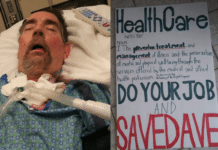The recent push in health care policy to advance health equity and decrease disparities is harming physician freedom and patients’ ability to receive individualized care.
The social determinants of health (SDOH), defined by the Center for Disease Control as the “conditions in the places where people live, learn, work, and play that affect a wide range of health and quality-of life-risks and outcomes,” have become an almost expected inclusion in any health policy proposal.
Is focusing on “equitable care” actually beneficial to patients and physicians? The short answer is no. SDOH requirements limit a physician’s ability to care for their patients as individuals, harm patient privacy, and advance socialized medicine. The longer answer requires a better understanding of the history of SDOH.
The term “social determinants of health” came from a book of the same name authored by Michael Marmot and Richard Wilkinson, professors at University College London. The abstract of the Social Determinants of Health published in 1999 states, “Health is a matter that goes beyond the provision of health services.” The authors argue that health policy must not only consider the services being provided, but the circumstances of the people who are receiving care.
In 2007, the World Health Organization released “A Conceptual Framework for Action on the Social Determinants of Health.” The seminal paper further established the concept of SDOH and the need for its inclusion in health policy.
SDOH initiatives have quickly increased in popularity. Today, federal health policy staffers have reported seeing SDOH in nearly every legislative proposal. This increase in prevalence requires critical examination into how SDOH play out practically in the exam room.
The statements “equitable care” and “reducing health disparities” — two core goals of SDOH — seem benign. However, setting these as objectives in health care policy radically changes the practice of medicine. Over time, SDOH may be the means by which health care is used to centralize the economy and exert control over nearly every facet of human life.
Equitable care is defined by the Agency for Healthcare Research and Quality (AHRQ) as: “Providing care that does not vary in quality because of personal characteristics such as gender, ethnicity, geographic location, and socioeconomic status.” The issue with equitable care is that it can only be measured by comparing the care received by one patient to another and asking, “Was this the same?” This comparison factor limits the physician’s ability to provide individualized care because treatment protocols will simply be followed to avoid potential lawsuits for not giving the exact same care to each patient.
No two patients are the same and the actual needs of patients vary based on their personal characteristics. Providing “equitable care” ignores the fact that a physician needs to approach a patient as an individual to provide the best care. Electronic Health Records (EHR) already allow the government to peer over doctors’ shoulders to see if they are prescribing treatment that is in line with hidden political agendas. Introducing SDOH only further limits physician freedom and harms patient care.
Socializing medicine for the purpose of making things seem fair benefits no one and harms everyone. Physicians should be allowed to treat their patients as individuals without fear of retribution and patients should expect to receive the best care possible per their specific needs. Housing, transportation, economic, and racial issues are not health care specific and should be addressed through appropriate policy at the state level. They should not be used as a justification to control physicians and limit patients’ access to care.

















